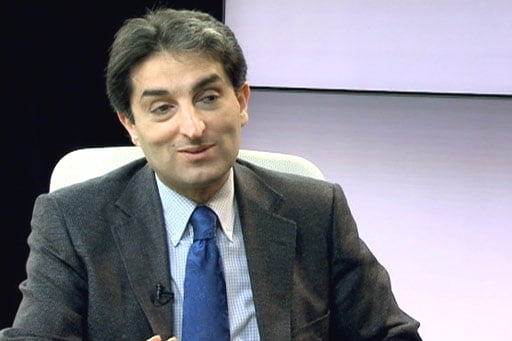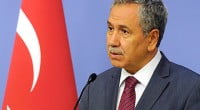Why couldn’t Bozdağ talk about the parallel structure?

Date posted: March 10, 2014
SELÇUK GÜLTAŞLI
Justice Minister Bekir Bozdağ paid a visit to Brussels last week but determinedly avoided any talk of the “parallel structure,” coined by Prime Minister Recep Tayyip Erdoğan, during his conservations with several European parliamentarians. There are rumors that he even told the interpreter not to translate this phrase into English.
Bozdağ conducted the suicidal Brussels visit last week. During this visit, which was carefully concealed from the media, Bozdağ did not even meet European Union Commissioner for Enlargement Stefan Füle and he gave a firsthand briefing to European parliamentarians about the developments in Turkey.
Turning a deaf ear to suggestions that he should not visit the EU after subordinating the Supreme Board of Judges and Prosecutors (HSYK) to his ministry — despite the fact that this top judicial watchdog was relatively democratized by constitutional amendments endorsed in a 2010 referendum — Bozdağ was bold enough to make the visit, but his remarks resulted in great disappointment. Indeed, he carefully refrained from explaining the “parallel state” thesis in full detail.
This is how Bozdağ’s meeting with European parliamentarians occurred: Several parliamentarians attended the meeting with the Turkish minister in order to learn more about Erdoğan’s panacea “parallel state” theory and they insistently questioned Bozdağ about the Hizmet movement. Although he has etched his name in history as the minister who undermined the HSYK and halted the graft investigations at the speed of light, Bozdağ could only say a few sentences about the “treason, Hashashin-like activities, espionage, collaboration with external forces” of this parallel structure. Yet Europeans were eager to hear some explanation from an official.
It is rumored that as he started talking about the parallel structure, Bozdağ turned to the interpreter and told him not to translate the phrase “parallel structure.” Everyone was perplexed. Bozdağ either didn’t hear the prime minister’s call to “disclose the parallel structure to the entire world” or he does not take Erdoğan seriously. Alternatively, this parallel structure rhetoric is nothing but food for domestic consumption, and the proponents of this rhetoric are sure they will disgrace themselves if they attempt to explain it to their finicky European counterparts.
Although he could enthusiastically talk about the “activities” of the parallel structure, he just opted to mention universal principles. Thus, he brushed off the matter by just saying that public servants from any religious or political group are supposed to act in compliance with the orders of their superiors.
Bozdağ: new victim
Liberal Democrat Member of the European Parliament for the East of England Andrew Duff, who attended the meeting with Bozdağ, noted that he had asked Bozdağ about the parallel structure twice, but the Turkish minister used none of the “colorful” arguments Erdoğan was parroting in rallies. For Duff, Bozdağ specifically refrained from employing the parallel structure rhetoric in Brussels because “ministers were not as convinced as the prime minister about it.”
I talked to these parliamentarians who attended the meeting. Their impression was that Bozdağ came to Brussels although he didn’t want to. One made an interesting comment: “The EU minister and other officials visited Brussels several times after Dec. 17. They met a number of European officials, particularly including Füle, and harsh negotiations were made. They realized that their parallel structure thesis was far from being convincing. This time they selected Bozdağ as the victim to test the waters in Brussels.”
This indicates that Erdoğan’s parallel structure thesis, fabricated to cover up the graft scandals, has failed to convince even his ministers. And as Erdoğan tries to “dispose of the money at home,” he discredits his colleagues, particularly including President Abdullah Gül, who used to be known as a “true statesman,” Bülent Arınç, dubbed as the “conscience of the party,” and Ali Babacan, known as the “voice of reasonable people.”
Source: Todays Zaman , March 10, 2014
Tags: Defamation of Hizmet | Democracy | Europe | European Union |
























